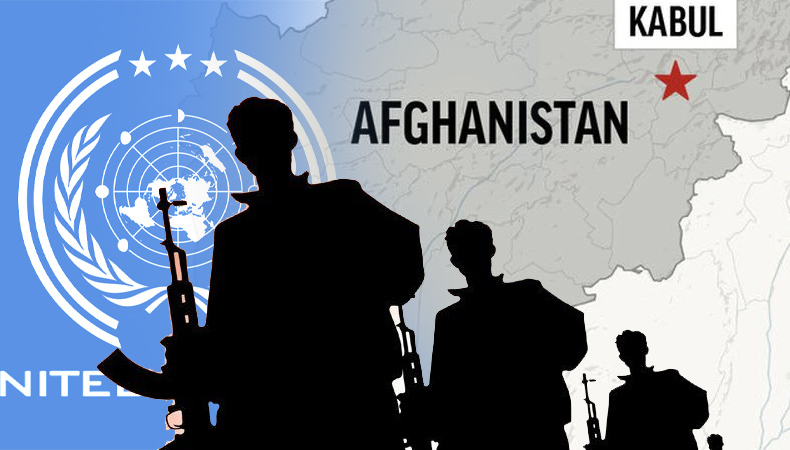Grim Realities: UN Report Highlights Growing Terrorist Threats in Taliban-Controlled Afghanistan

The recent publication of the 14th report by the UN Analytical Support and Sanctions Monitoring Team on the peace and security of Afghanistan has shed light on the alarming rise of transnational terrorist threats since the Taliban assumed control nearly two years ago. This article examines the key findings of the report, emphasizing the disconcerting contrast between the Taliban’s commitments and the ground reality. It also highlights the resurgence of dangerous terrorist groups such as Al-Qaeda and Daesh, their operational activities, and the implications for regional and global security.
Also Read – Iran-Taliban Dispute for Water! What is This?
The Failure of Taliban’s Commitment
The story begins by highlighting the problematic 2021 deal between the Trump administration and the Taliban, which included a Taliban promise to stop any terrorist group from using Afghanistan as a base to endanger the security of the United States and its allies. The report’s conclusions show that the reality on the ground, meanwhile, is far different from these assurances. The article focuses on the fact that not only have the Taliban failed to effectively combat Al-Qaeda, but also that senior members of the organization isation, who have been gone from Afghanistan for nearly two decades, are currently working freely there.
Al-Qaeda’s Reestablished Presence
The report highlights Al-Qaeda’s low-profile operations in Afghanistan, focusing on using the country as an ideological and logistical hub for recruitment and mobilization. It emphasizes the symbiotic relationship between the Taliban and Al-Qaeda, with the latter viewing Taliban-controlled Afghanistan as a safe haven. The article points out that Al-Qaeda primarily operates in nine provinces in the south and east, with an estimated 400 members, a number that rises to 2,000 when including family members and supporters. The report also mentions a concerning link between Al-Qaeda and Iran, indicating travel between the two regions by senior Al-Qaeda leaders.
The Rise of Daesh and Regional Threats
Daesh has relocated its primary operations to Afghanistan after losing its stronghold in Syria and Iraq. The research emphasizes how smart, deadly, and frequent Daesh operations have grown in the nation. Further complicating the issue is the Taliban’s inability to stop Daesh’s mass casualty operations against civilians. The article also emphasizes the existence of a number of regionally targeted terrorist organizations in Afghanistan, including Tehreek-e-Taliban Pakistan, which seeks safety within areas ruled by the Taliban.
Recommendations for Countering the Terrorist Threat
In response to the rising terrorist danger in Afghanistan, the paper suggests three crucial actions for the international community. First of all, it emphasizes how crucial it is to keep the UN sanctions in place on Taliban leaders and to approach Kabul with caution. Any discussions must be cautious due to the Taliban’s contempt for guarantees and backing for international terrorist organizations.
Second, the paper emphasizes the significance of finding and coordinating with Afghan non-extremist organizations that are eager to fight terrorism. A prospective partner is the Ahmad Masoud-led National Resistance Front of Afghanistan, which really opposes the Taliban and other terrorist groups.
Finally, the report recommends stepping up cooperation with the surrounding nations, with Tajikistan as the main target. Due to Tajikistan’s longstanding resistance to the Taliban and susceptibility to international terrorist organizations, covert cooperation may be effective in fending off the growing terrorist threat.
Also Read – Taliban decree bans women from gyms, fairs and parks
The report warns decision-makers of the seriousness of the scenario developing in Afghanistan as it comes to a close. It emphasizes the interconnection of Afghanistan’s security situation and its potential impact on regional and global stability given that international attention is frequently diverted to other international conflicts. To avoid a further escalation and to advance peace and security in the area, the paper urges a proactive approach to recognizing and resolving the difficulties posed by an Afghanistan ruled by the Taliban.




